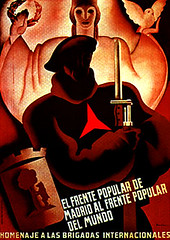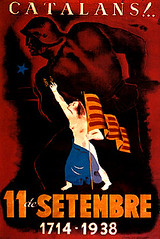American History X
-- scorching Billmon post, "The Philadelphia Experiment"
Well, I say that all the time, as well, because the person who writes it in the short-term is somebody who is not going to have the advantage of time to look at history, look at the true history of the presidency. You know, it's amazing that - there's kind of an interesting George Washington now - Ellis has written a book which I'm reading now, and David McCullough is writing a book on George Washington. I read one earlier on Washington - I can't remember the name of it - Washington Crosses The Delaware - something - it was a very interesting book about some of the many - how he organized the army. The Alexander Hamilton book by Chernow, which is obviously about Hamilton, but it was about the time of George Washington and Washington plays a prominent role. It's very interesting, there's a resurgence in analyzing Washington, the first President, during the time of the 43rd President, which makes my point - that there's - history is always evolving, and people's appreciation of a President changes over time, as well - one way or the other.
-- GWB, Cal Thomas Interview, 2 Feb 2005
Look, history -- shall I give you my talk on history and presidencies? OK, thank you. What's interesting is George Washington is now getting a second or third or fifth or tenth look in history. I read the Ellis book, which is a really interesting book, and “His Excellency, “ it's called. McCollough's writing a book on George Washington as well.
-- GWB, , Press Conference, 16 March 2005
"I think that part of education is to expose people to different schools of thought," Bush said. "You're asking me whether or not people ought to be exposed to different ideas, the answer is yes."
-- GWB, "Bush: Intelligent Design Should be Taught", Associated Press, 2 August 2005
Like our own nation's founders over two centuries ago, the Iraqis are grappling with difficult issues, such as the role of the federal government. What is important is that Iraqis are now addressing these issues through debate and discussion -- not at the barrel of a gun.
-- GWB, Radio Address, 27 August 2005
I want our folks to remember our own Constitution was not unanimously received. Some delegates at the Philadelphia Convention in 1787 refused to sign it. And the draft was vigorously debated in every state and the outcome was not assured until all the votes were counted.
-- GWB, Presidential Address, 28 August 2005

